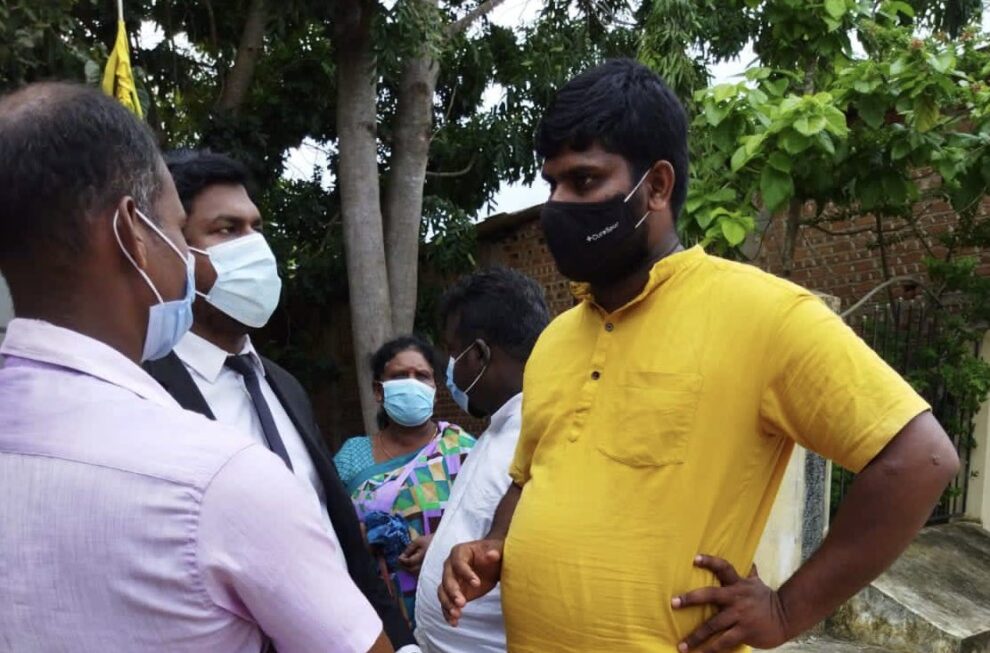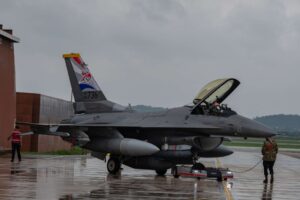The recent arrest of four Tamils in Sri Lanka’s Eastern Province — when they commemorated their loved ones killed in the final phases of the civil war in 2009 — has put Tamils’ right to memorialise in sharp focus yet again.
The police said the arrests were based on magistrate court orders that ruled against holding such commemorative events, citing reasons of “public health” and “attempts to revive” the Liberation Tigers of Tamil Eelam (LTTE) that the Sri Lankan military eliminated.
According to local Tamil media reports, three women, including a university student, and a man were arrested by the police in Sampur, located in the eastern Trincomalee district late on Sunday. Video footage widely shared on social media showed the police dragging a woman from her home.
Another court in the Eastern Province on Tuesday issued an order observing that commemorating members of the LTTE may lead to a “revival of terrorist activities” in the country, and “disrupt people’s everyday lives”. Further, media reports said the police disrupted events held in the Batticaloa and Ampara districts of the Province, where participants prepared and served kanji (porridge) in a symbolic act to remember the gruesome final days of the battle when tens of thousands of civilians were killed in the shelling by state armed forces.
The Police Media Division in Colombo said in a statement that the arrests were made as the suspects “disobeyed” a court order and one of them allegedly attacked a police officer with a knife.
When contacted, a senior police official from the Eastern Province told The Hindu that the arrests were “preventive”. “The Eastern Province is multi-ethnic, with Tamils, Sinhalese and Muslims living peacefully. If some Tamils commemorate members of the LTTE, it may trigger anger among others who faced losses owing to the LTTE’s actions. This is to ensure there is no communal disharmony,” the senior official said, asking not to be named.
Fifteen years since the end of Sri Lanka’s protracted war, its gory end invokes contrasting narratives and sentiments in the Tamil-majority north and east, and the Sinhala-majority south. Tamils mark May 18 as a day of grief and mourning, paying homage to their relatives, while much of the Sinhala-majority south celebrates May 19 as “victory day”, and soldiers as “war heroes”.
Amid the two strikingly different narratives, Sri Lanka has made little progress on truth, accountability, and justice that Tamils are demanding. A political solution, too, remains elusive.
“This is an emotional time for Tamils,” noted Rt. Rev. Noel Emmanuel, Bishop of Trincomalee. “People struggle during this time, remembering their loved ones from those very traumatic times,” he told The Hindu.
Government records showed 1,46,679 people went missing, he said, adding that just like justice and reconciliation, grieving too, is an important element of the healing process.
Observing that a space for such commemorations opened up during President Maithripala Sirisena’s term in office, Bishop Emmanuel said: “In those years, people held similar commemorations and it caused no disharmony or disruption in the community. My urgent appeal to authorities is just let people do that. Harassing people for remembering their loved ones goes against their basic human rights and fundamental freedoms.”
“I would also like to say that we remember with respect the lives lost from the majority Sinhalese community during the war, including soldiers,” he added.
Source: The Hindu
















